The Lilith Blog
October 27, 2017 by Yona Zeldis McDonough
This Middle-Grade Novel Uses a Magical Doll to Confront Nazism
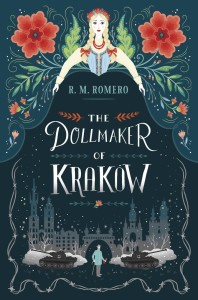 In R.M. Romero’s debut middle-grade novel, Karolina is a living doll whose king and queen have been overthrown. A strange wind spirits her away from the Land of the Dolls, and she finds herself in Kraków, Poland, in the company of the Dollmaker, a man with an unusual power and a marked past. The Dollmaker has learned to keep to himself, but Karolina’s courageous and compassionate manner lead him to smile and even to befriend a violin-playing father and his daughter—that is, once the Dollmaker gets over the shock of realizing a doll is speaking to him. But their newfound happiness is dashed when Nazi soldiers descend upon Poland. Karolina and the Dollmaker quickly realize that their Jewish friends are in grave danger, and they are determined to help save them, no matter the risks. Lilith’s fiction editor Yona Zeldis McDonough talked with Romero via email about what drew her to this topic, and about the challenges of blending fantasy with fact.
In R.M. Romero’s debut middle-grade novel, Karolina is a living doll whose king and queen have been overthrown. A strange wind spirits her away from the Land of the Dolls, and she finds herself in Kraków, Poland, in the company of the Dollmaker, a man with an unusual power and a marked past. The Dollmaker has learned to keep to himself, but Karolina’s courageous and compassionate manner lead him to smile and even to befriend a violin-playing father and his daughter—that is, once the Dollmaker gets over the shock of realizing a doll is speaking to him. But their newfound happiness is dashed when Nazi soldiers descend upon Poland. Karolina and the Dollmaker quickly realize that their Jewish friends are in grave danger, and they are determined to help save them, no matter the risks. Lilith’s fiction editor Yona Zeldis McDonough talked with Romero via email about what drew her to this topic, and about the challenges of blending fantasy with fact.
YZM: What inspired you to write this novel?
RMR: When I was 18, I traveled to Kraków, Poland, and visited the Auschwitz-Birkenau concentration camp. I fell in love with Kraków, a city that fell like it had come from a fairy tale, and what I saw at Auschwitz haunted me for many years afterward. Almost a decade after that original visit, I wrote a conversation between doll who had been brought to life and the man who made her. I soon realized that this scene took place in Kraków, and the story evolved from there!
- No Comments
October 26, 2017 by Eleanor J. Bader
America’s Home Care Crisis—And the Filmmaker Trying to Change It
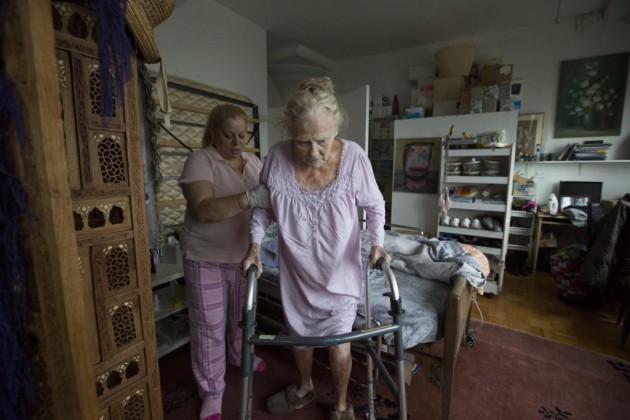 When Deirdre Fishel—director of CARE, a highly-lauded documentary about the growing home care crisis in the United States—was an undergraduate at Brown, she saw a film called We Will Not Be Moved. The movie addressed gentrification in Cincinnati, Ohio, and as she watched the footage, Fishel says that she became enraged that developers wanted to displace long-term residents to make way for the construction of high-end housing. In short order, Fishel found an internship in Cincinnati and spent a semester renovating housing for low-income people.
When Deirdre Fishel—director of CARE, a highly-lauded documentary about the growing home care crisis in the United States—was an undergraduate at Brown, she saw a film called We Will Not Be Moved. The movie addressed gentrification in Cincinnati, Ohio, and as she watched the footage, Fishel says that she became enraged that developers wanted to displace long-term residents to make way for the construction of high-end housing. In short order, Fishel found an internship in Cincinnati and spent a semester renovating housing for low-income people.
It was 1982 and serendipitously, she says, she met Tony Heriza, the filmmaker who directed We Will Not Be Moved. “He became my mentor,” Fishel told Lilith reporter Eleanor J. Bader. “We’ve had a long history together and thanks to him, I became dedicated to using film as an organizing tool.” Heriza was the producer of CARE, Fishel’s fourth film. (Earlier works include Risk; Still Doing It: The Intimate Lives of Women Over 65; and Sperm Donor X.)
Fishel and Bader recently spoke in Fishel’s light-filled Brooklyn kitchen.
- No Comments
October 25, 2017 by Eleanor J. Bader
Bhopal Dance: The 2017 Novel With Political Lessons from a 1984 Catastrophe
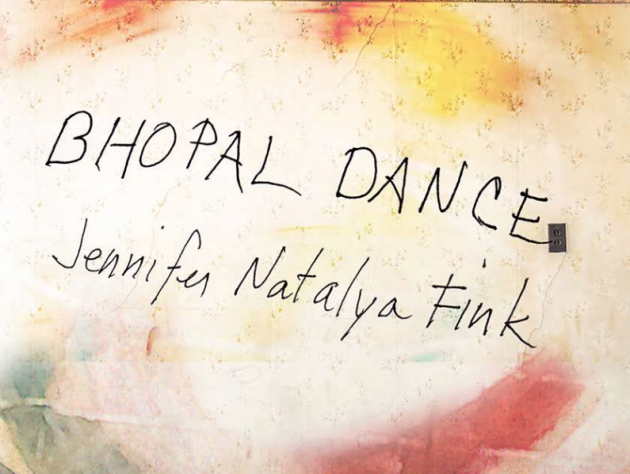 When Jennifer Natalya Fink was in her first semester of college, she says that two events made her feel as if the end of the world was imminent. The first was the November, 1984, re-election of Ronald Reagan. The second was an explosion of a Union Carbide pesticide plant in Bhopal, India, that began on December 2 that year, and spewed 30 tons of the highly-toxic gas methyl isocyanate into the air. Thirty-three years later, Bhopal remains the worst industrial disaster in world history.
When Jennifer Natalya Fink was in her first semester of college, she says that two events made her feel as if the end of the world was imminent. The first was the November, 1984, re-election of Ronald Reagan. The second was an explosion of a Union Carbide pesticide plant in Bhopal, India, that began on December 2 that year, and spewed 30 tons of the highly-toxic gas methyl isocyanate into the air. Thirty-three years later, Bhopal remains the worst industrial disaster in world history.
Fink’s latest novel, Bhopal Dance, explores this environmental calamity through the eyes of three young North Americans, one man and two women, who want to see Union Carbide prosecuted for poisoning thousands. The three are intimately involved—as lovers and as political comrades—and their strategic plan to avenge the deaths can be seen as both a call to arms and a cautionary tale. Winner of the 2017 Catherine Doctorow Innovative Fiction Prize by FC2/University of Alabama Press, Bhopal Dance will be released in March 2018.
Fink recently met with Eleanor J., Bader to discuss the book, her fourth. (Her other books include BURN, V, and The Mikvah Queen, which won the Dana Award and was nominated for both a National Jewish Book Award and the Pulitzer Prize.) Over tea, coffee, and bagels, their conversation touched on a wide range of topics: The ongoing need for non-violent activism to promote social justice, living as a secular Jew, and juggling writing, parenting, and teaching.
- No Comments
October 24, 2017 by Rebecca Katz
Wedding Brain
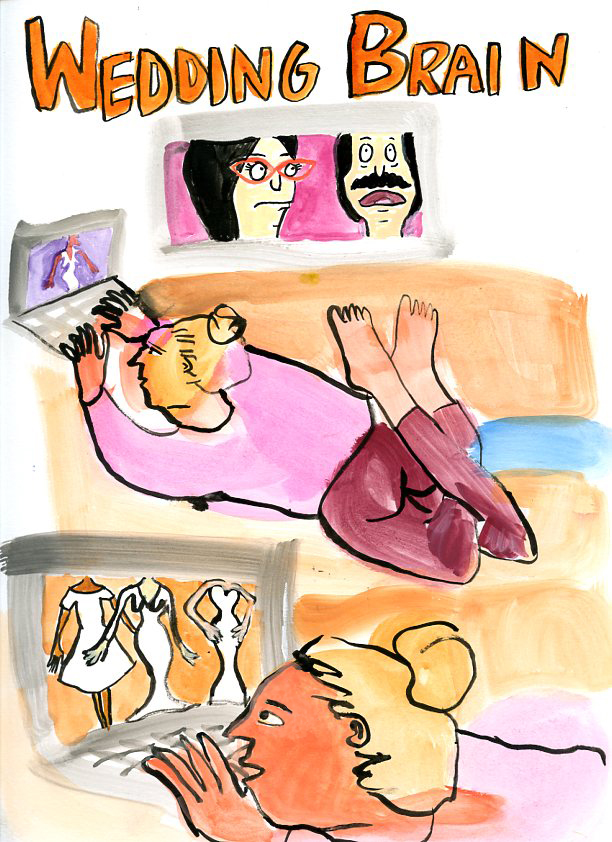
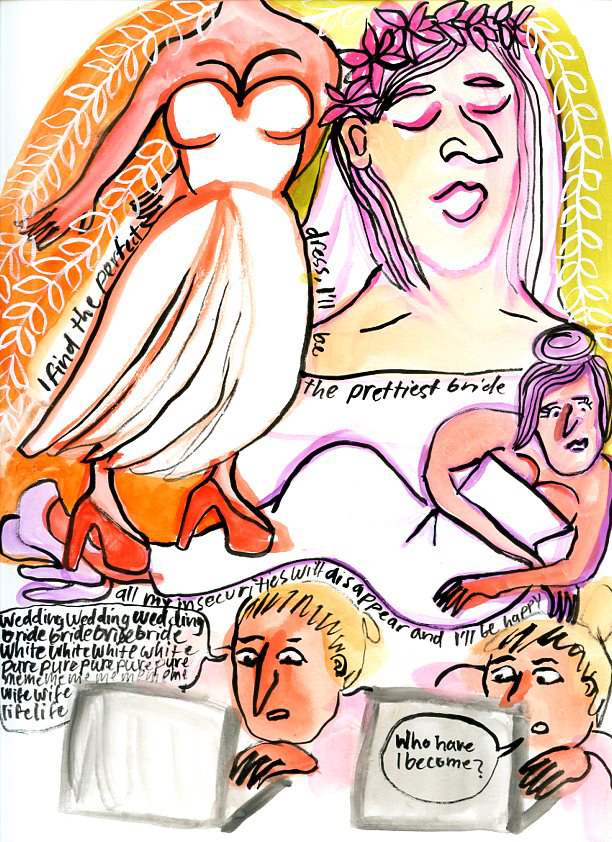
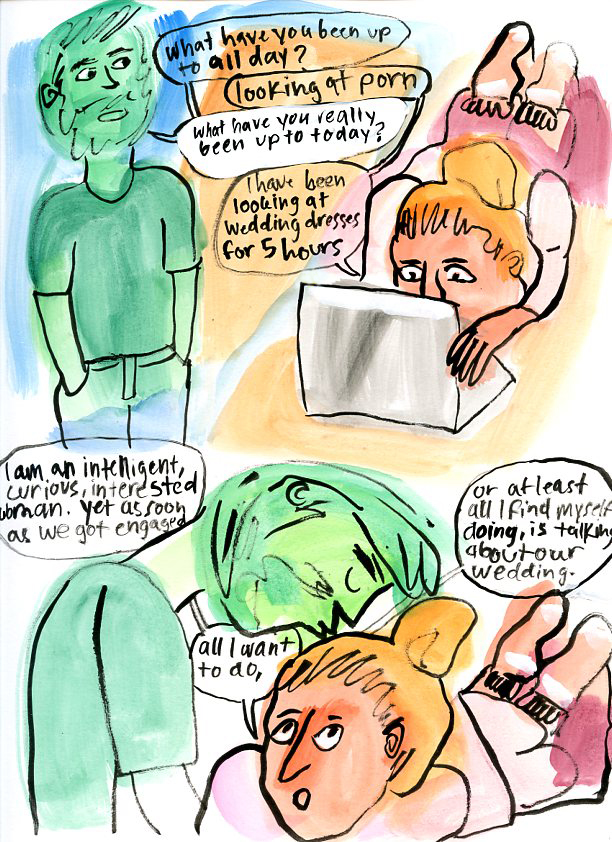
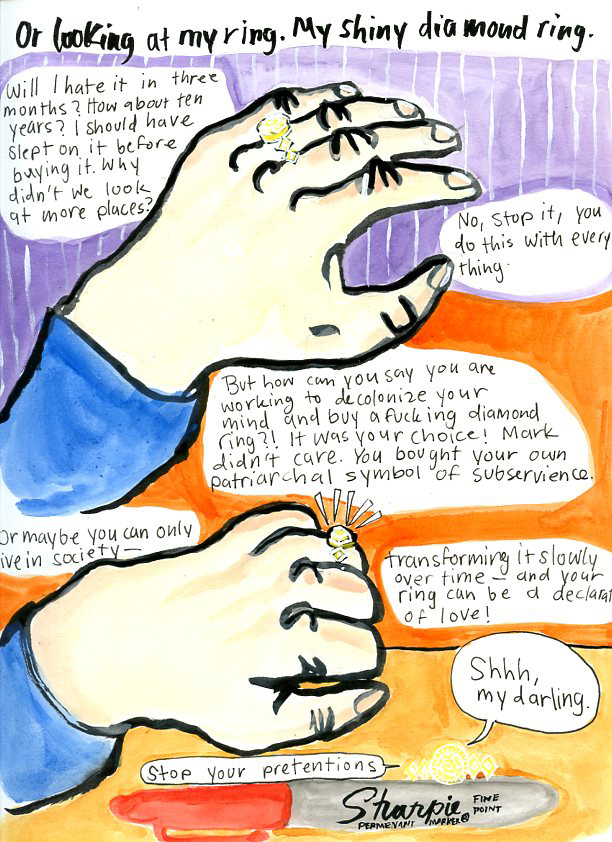
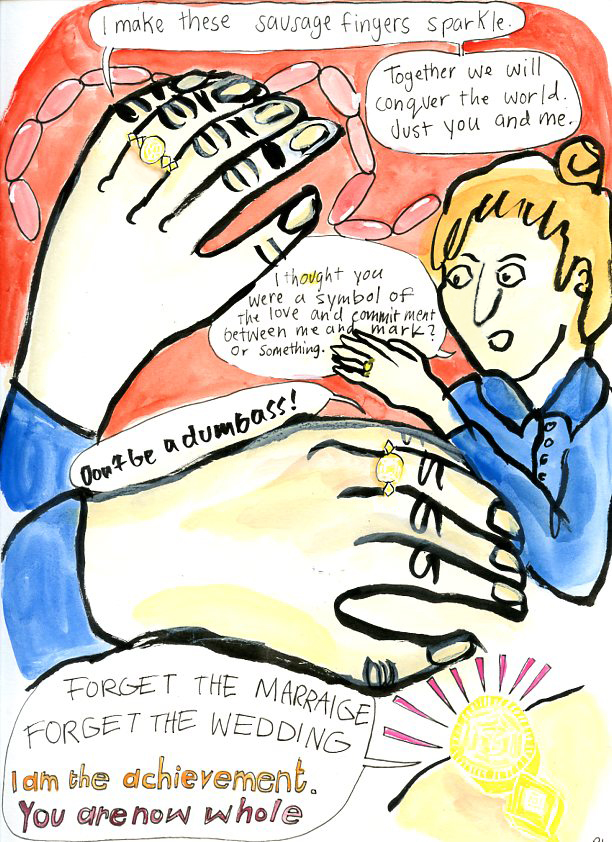
Rebecca Katz is your average white, Jewish, twenty-something who likes to talk and draw about food, privilege, television, and her period. After six years away, Rebecca has returned home to Brooklyn and lives just three blocks away from where she grew up. Take a look at more of her comics at katzcomics.tumblr.com.
The views and opinions expressed in this article are the author’s own and do not necessarily reflect those of Lilith Magazine.
- No Comments
October 20, 2017 by Helene Meyers
Billie Jean Beats Bobby: Watching Battle of the Sexes in Trumpian Times
 If Hillary had won, what would it be like watching feminist and queer icon Billie Jean King beat cocky Bobby Riggs in Battle of the Sexes, the film that revisits their spectacular 1973 tennis match?
If Hillary had won, what would it be like watching feminist and queer icon Billie Jean King beat cocky Bobby Riggs in Battle of the Sexes, the film that revisits their spectacular 1973 tennis match?
As the world is—a self-professed pussy-grabber in the White House who isn’t surprised by revelations about serial sexual harasser Harvey Weinstein, employers now having the religious right to prohibit health insurance coverage for birth control, the so-called Justice Department deciding that transgender workers are not protected from employment discrimination, white supremacists marching yet again in Charlottesville—Battle of the Sexes provides some cathartic hope as well as contemporary and historical angst.
- No Comments
October 19, 2017 by Cantor Barbara Ostfeld
#MeToo: My Family’s Been Saying This for One Hundred Years

Photo credit: The People Speak (www.ps.net)
My grandmother was a pharmacist in Romania. Day after day in her floor length skirts she would climb a scaffold on a rolling ladder to fetch medicines. Day after day customers positioned themselves to look up her skirts. She told me this story over and over again, blushing every time.
When my mother’s cousin returned from Auschwitz, unrecognizable and mute, he was a guest in my mother’s childhood home, behind the family’s Jew Store in South Bend Indiana. Until he grabbed her and forced his tongue into her mouth.
In the Abraham Lincoln Memorial Presidential Library and Museum, just before Passover in 1960, a man in the dark rotunda called me to him, grabbed my chest and wouldn’t let go. I was wearing a new dress that Mom had sewed me for the Seder.
I won’t tell my older daughter’s story. It is hers to tell, but the setting was a middle school locker room and she was changing out of her swim suit.
I see hundreds of Facebook postings. Me, too, they say.
I don’t see Congress proposing consent based education that would begin in elementary school. All students should be taught about when and how to offer touch and how to refuse it. All students should be taught that any indication of refusal must immediately be accepted.
The views and opinions expressed in this article are the author’s own and do not necessarily reflect those of Lilith Magazine.
- No Comments
October 18, 2017 by Rishe Groner
#MeToo: The Shechinah Is Crying
I said Me Too, and so did a lot of women. And it’s an important conversation. And I want more than men to stop raping people. Or really, people to stop raping people.
I want men to stop talking over me in conversation. To ask me for my opinion, actually, instead of assuming they know more than me on a given topic. Especially if it’s an expertise of mine.
For that matter, I want to be able to offer myself as an expert in a conversation without being questioned, invalidated, wondered about.
- No Comments
October 17, 2017 by Melissa R. Klapper
Jewish Feminists and Intersectionality: New Word, Old Story
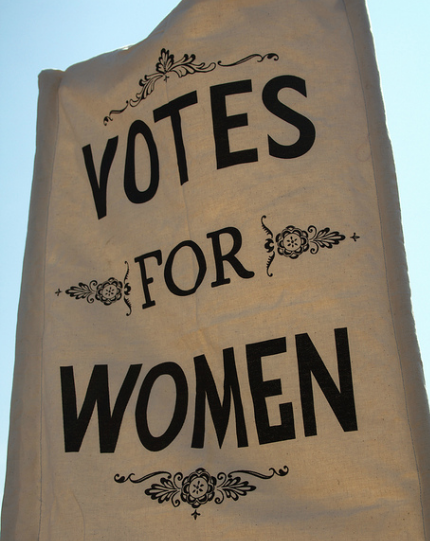
Walk for Women 2013 – Brighton
As a historian who has written extensively about American Jewish women’s activism, particularly during the late nineteenth and early twentieth centuries, I was thrilled to see Maud Nathan and Annie Nathan Meyer on the cover of Lilith. These powerhouse sisters were important figures in the American Jewish community at the turn of the last century, and they both took full advantage of their privileged status to improve the lives and opportunities of women. The story of sisters who were both public figures and reformers yet stood on opposite sides of the issue of suffrage should be better known. Alice Sparberg Alexiou’s article brings them to vibrant life.
However, there are a few issues brought up in the article that deserve further exploration. One is that the successful 1917 New York suffrage referendum campaign that Alexiou so vividly describes followed in the wake of earlier failure. Only two years earlier New York’s voting men, along with those in Massachusetts and Pennsylvania, had defeated a statewide suffrage referendum. After that failed campaign, some suffrage leaders cast the blame on the immigrant vote, and especially Jews, despite the fact that the Jewish areas of New York City had been the most supportive of enfranchising women. Jewish suffragists like Maud Nathan felt a special responsibility not only to ensure a victory in 1917 but to demonstrate the support of the broader Jewish community for women’s right to vote. The American Jewish newspapers of the day, whether published in English, Yiddish, Hebrew, or German, all debated the subject endlessly, and although some voice was certainly given to religious objectors and anti-suffragists, the vast majority of these periodicals endorsed suffrage and rejoiced at the outcome of the 1917 campaign. Those that had opposed suffrage accepted the results of both the 1917 referendum and, later, the Nineteenth Amendment that enfranchised women on the federal level. Annie Nathan Meyer herself joined the League of Women Voters immediately after women won the right to vote; it is not entirely accurate to characterize her as remaining an “Anti” for the rest of her life.
- No Comments
October 17, 2017 by Rebecca Krevat
Stop Victim Blaming: A Response to Mayim Bialik from One Member of the Orthodox Community to Another
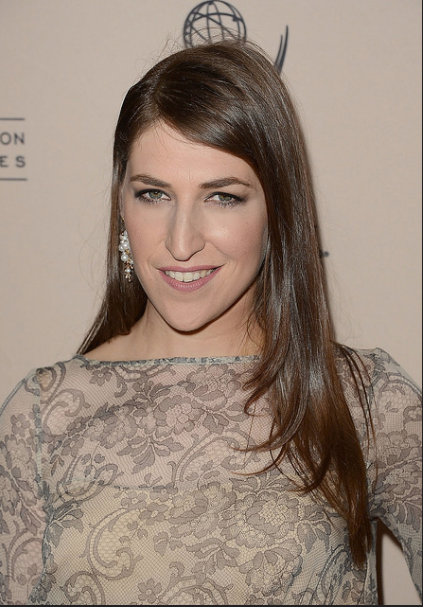
Photo credit: Jason Merritt
On October 13th, the actress Mayim Bialik wrote an op-ed titled, “Being a Feminist in Harvey Weinstein’s World” about the ways in which she feels that her non-traditional Hollywood appearance, and her “modest” behavior has kept her safe from advances by men like Harvey Weinstein. She wrote, “I still make choices every day as a 41-year-old actress that I think of as self-protecting and wise. I have decided that my sexual self is best reserved for private situations with those I am most intimate with. I dress modestly. I don’t act flirtatiously with men as a policy.” It’s baffling that someone like Bialik would take a stance like this as a feminist, to put the burden of preventing an assault on the person being assaulted, and not the assaulter. Let’s be clear: this op-ed is the definition of victim blaming. In Bialik’s world, it’s not Harvey Weinstein’s fault for pressing forward as the women said no, but the women themselves for being too conventionally beautiful, wearing too much make-up, or pair of tight jeans. Weinstein’s victims were “asking for it.”
I am also surprised to hear this take from Bialik for another reason—because she is an Orthodox Jew. As such, Bialik should know that sexual assault happens in our community, where many individuals take great care to act and dress according to her definitions of “modesty.” I once had a camp counselor who hesitated to buy a pair of burgundy shoes because they could be misconstrued as immodest. According to Bialik’s philosophy, this careful attention to modesty should equate to a zero percent rate of sexual harassment and violence in the Orthodox community. Sadly, we all know that this isn’t the case.
- 4 Comments
October 16, 2017 by Patricia Grossman
Meet the Heroes Who Performed 11,000 Abortions Before Roe v. Wade
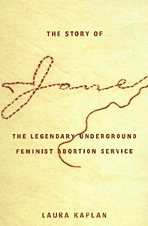 In the four years before Roe v. Wade legalized abortion in 1973, the Chicago-based service collective known as Jane performed 11,000 abortions. At first Jane enlisted doctors to perform the procedure, but when the collective of women found out their chief practitioner was not a doctor after all, a subset of Jane learned to perform abortions themselves, including inducing miscarriages in women with later term pregnancies. The story of Jane—how it was organized, how it evolved, and the lives it changed—is a fascinating document of a vital movement in the history of women’s rights.
In the four years before Roe v. Wade legalized abortion in 1973, the Chicago-based service collective known as Jane performed 11,000 abortions. At first Jane enlisted doctors to perform the procedure, but when the collective of women found out their chief practitioner was not a doctor after all, a subset of Jane learned to perform abortions themselves, including inducing miscarriages in women with later term pregnancies. The story of Jane—how it was organized, how it evolved, and the lives it changed—is a fascinating document of a vital movement in the history of women’s rights.
Twenty years ago, the paperback edition of The Story of Jane, by Laura Kaplan, was published. Since then, Roe v. Wade has been assaulted at all levels of government, and the book is increasingly relevant to our times.
PATRICIA GROSSMAN: When Jane first formed, how aware were its members about women’s health issues?
Laura Kaplan: Because we had been powerless, we knew nothing. When we started Jane, there weren’t any self-help books. You couldn’t go into a bookstore and get a book about women’s health. We were barred from this information. And not only were we barred from this information about our own bodies and how they worked, but were given the message that wanting to understand was somehow creepy and unseemly. Our bodies were the purview of men, including doctors, and the doctors were pretty much all men then.
- 1 Comment
 Please wait...
Please wait...